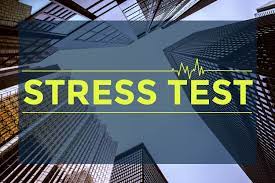New Mortgage Stress Test
June 1, 2021 Mortgage News

The new stress test takes effect today, June 1st, 2021. Borrowers who don’t have to pay an insurance premium because they’re making down payments of at least 20% must be able to prove they can afford an interest rate of 5.25% in order for their loans to be approved. That’s regardless of the mortgage rate they’re offered by their lender.
The interest threshold under the previous stress test was a lower 4.79%.
What this all means is that regardless of the size of your down payment, your savings or your income, getting a mortgage will soon be more difficult — but not prohibitively so. On its own, the increase in the stress test shouldn’t dash your dreams of homeownership. Here’s how to be ready.
The mortgage stress test, also known as the B-20 Guideline, has been frustrating homebuyers since it was first implemented by the Office of the Superintendent of Financial Institutions, or OSFI, in Jan. 2018. But it’s supposed to help buyers.
When they stretch themselves financially to afford homes, it leaves little room in their budgets for higher mortgage costs. If mortgage rates were to increase significantly over the course of a homeowner’s mortgage term, it could potentially make it much more difficult, if not impossible, for that borrower to make payments.
So, by baking a theoretical increase into the mortgage rates buyers are offered, OSFI’s intent is to ensure that anyone buying a home will be able to absorb the cost of a mortgage that becomes more expensive.
And those higher mortgage costs are coming. During a recent news conference, Bank of Canada governor Tiff Macklem warned homebuyers that the mortgage rates they’re seeing today are “unusually low,” and that buyers should not expect home values to keep rising rapidly.
The terms of the original stress test said borrowers had to prove they could manage a mortgage at a rate that was either 2% higher than the rate offered by their lender or equal to the five-year benchmark rate published by the Bank of Canada — whichever was higher.
The BoC’s five-year benchmark at the time was 4.79%, so if your lender offered you just a 2% interest rate on your mortgage, you had to prove you could afford the same mortgage at 4.79%.
As of today, that hurdle gets a little higher.
A stress test of 5.25% is not likely to shut would-be buyers out of the housing market, says BMO chief economist Doug Porter.
“This doesn’t increase their actual costs,” Porter says. “It just throws up some potential limits on what they can borrow — if they were already borrowing up to the limit, and if they had a down payment of 20 per cent or more. Even then, we estimate that if a potential buyer’s maximum mortgage had previously been $1 million, now it will be $955,000.”
The tougher stress test will impact all homebuyers. It won’t only eat into your buying power, but that of every other house-hungry Canadian. Porter says the across-the-board nature of the stress-test tweak may help rein in some of Canada’s most out-of-control real estate markets.
With Canada’s mortgage market being as diverse as it is, not every lender in the country is actually required to abide by B-20. Private lenders, mortgage investment corporations, alternative lenders and provincially regulated credit unions all provide mortgages free of any stress test requirements.
But you’ll still have to wow them with your income and your creditworthiness. There’s no getting around that.
While it would be nice to think that a stricter stress test will chase enough buyers from the housing market that prices start to recede, don’t count on it.
If you were preapproved to buy a home for $500,000 with a 20% down payment before the stress test change, you’ll likely only be qualified to buy a home for $480,000 now. That means saving up an additional $20,000 to make up the difference.
In terms of stopping some Canadians from even approaching the housing market, an increased stress test won’t do nearly as much damage as high home prices already have.
And today’s low mortgage rates should help compensate for some of your reduced buying power.
So don’t let all the hype swirling around the stress test knock you off course. Get out there and do what every successful homebuyer has done.
The best mortgage rates go to the borrowers with the highest credit scores, so check your score for free online. If it needs improvement, it’s better to find out now, rather than after you’ve stumbled upon your dream home. If it needs correcting, take care of that. I see lots of credit histories that are just plain inaccurate!
Reach out to a mortgage broker with any questions you have about financing and affordability. Find a broker you feel comfortable opening up to, because the more questions you answer honestly, the better the odds you’ll find a mortgage solution that fits your budget, your lifestyle and your long-term financial plans.


